Following Moscow, Tatarstan is ready to tighten control over migrants
State Duma deputies believe that electronic passports will help get rid of lawbreakers
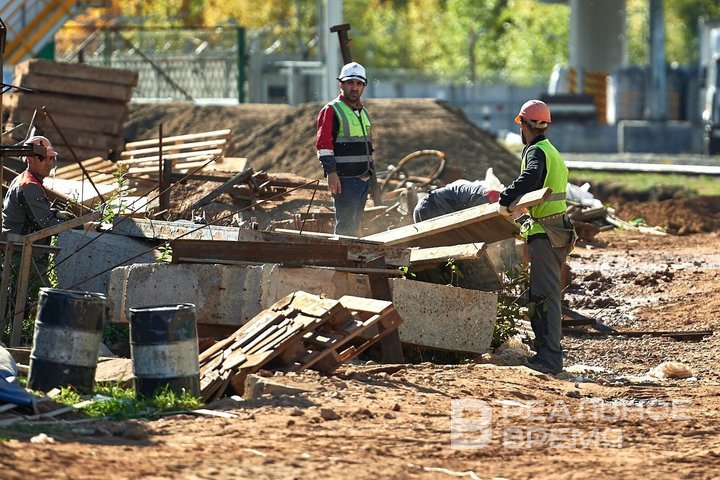
After the introduction of electronic passports for migrants in Moscow, the experiment may be extended to all of Russia, Realnoe Vremya found out. Upon entering the country, in addition to receiving a digital identity card, a foreign citizen will have to undergo biometric control, including photographing and fingerprinting. Read more about how these measures may work in Tatarstan, what else is planned to be done to resolve the migration issue and how these plans are perceived by Tatarstan employers who use migrant workers in our article.
“It's a security issue”
State Duma deputy Yaroslav Nilov called the issuance of electronic passports to migrants in Moscow in an experimental mode from 2025 “a reasonable and long-overdue decision.” Commenting on the “pilot” in a conversation with Realnoe Vremya, he called for introducing new requirements for foreign citizens coming to Russia to work.

As Nilov said, in November, during his business trip to Kaliningrad, he visited a centre where potential foreign workers are tested for their knowledge of the Russian language. The deputy noted that after the State Duma's decision to exclude commercial intermediary agencies from exams, the situation has changed qualitatively: if earlier applicants would “pass” the exam and receive a work permit, now up to 50% of foreign citizens are eliminated during the Russian language test. As a result, those who are unable to string two words together in the state language of their host country either learn the language and retake the exam or return to their homeland.
Nilov also noted that foreigners who come to work on visas — at the invitation of employers, have practically no conflicts with the law, unlike the “unorganized” workforce arriving in Russia on their own initiative and subsequently acquiring patents. According to Nilov, introducing strict control over such migrant workers is a matter of security for the country's citizens:
“Fingerprint registration devices should be installed throughout the country, not just in Moscow, so as not to let into the country those criminal elements who have committed offenses, crimes and whose entry is restricted. Now they change two or three letters in their last name or the last name completely, change their documents and re-enter Russia, bypassing the bans. And then we wonder where we get rapes, robberies, thefts, murders, where ethnic gangs and everything else come from... Therefore, we need to move in this direction, see how the pilot project will work in Moscow, make adjustments if necessary and spread the experience everywhere. Of course, this will cost some money, but you can't skimp on safety.”
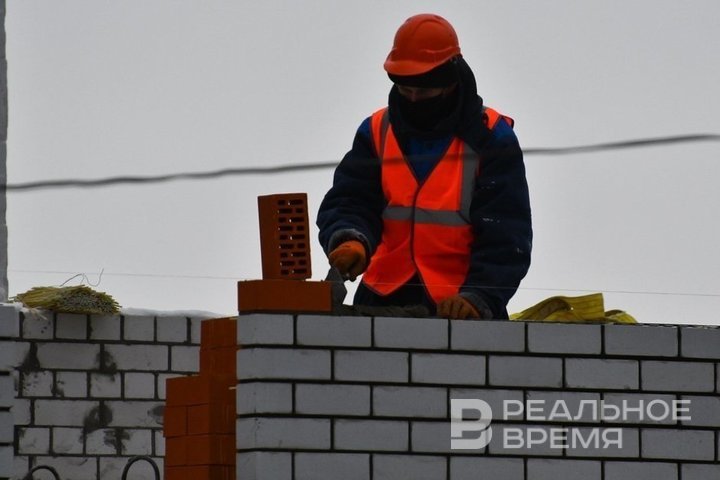
Yaroslav Nilov also made it clear that the next point of application of the deputies' efforts could be the issues of simplifying the procedure for the organised “import” of foreign labour by employers:
“Our migration should be built on the principle of targeted recruitment, on request. And there are problems there. First of all, it is a very bureaucratic procedure. The processes of obtaining quotas by organizations, verification activities take a very long time, and it turns out that it is sometimes easier for an employer, with a very tight turnover, to take a foreign citizen with a patent.”
“All legal loopholes must be closed”
State Duma deputy from Tatarstan Ildar Gilmutdinov is also convinced that the Moscow experience will subsequently need to be extended to all of Russia, and he sees the ultimate goal of the “experiment” as the eradication of illegal migration with all its disadvantages.
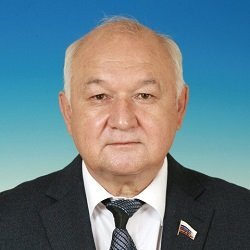
All legal mechanisms, decisions on which are made by the regions, are good here, the deputy believes. The electronic passport proposed by Moscow is an additional measure against illegal migration, it will allow monitoring and stopping it. If this measure proves effective, then it can and should be used in other regions of the country.
Gilmutdinov stressed that in order to disseminate the Moscow experience, no other decisions will be required except those of the regions themselves, “because the applications for the arrival of foreign workers are submitted by the regions themselves, they determine how many migrants they need this year.”
The deputy from Tatarstan explained that the issue of the scope of powers of the regions of the federation in relation to foreign citizens still needs to be regulated, as well as the legal framework for labour migration needs to be formed. Answering a question from Realnoe Vremya about how it is supposed to solve the problem when migrants, after purchasing a patent, do not go to jobs where foreign workforce are really needed but settle in markets and in areas where Russian citizens can and are ready to work, he indicated that this issue is also on the agenda:
“We must now look, analyse who and where works on the basis of patents, and regulate the situation with employers who accept foreign workers with patents. We wanted to provide labour, say, for a certain labour order, but, unfortunately, it did not work out the way we wanted. In solving one problem, it seems to me that we have not fully worked out the whole situation, if migrants are brought in and then fired, they turn out to be unnecessary and begin to crawl away in other directions.”
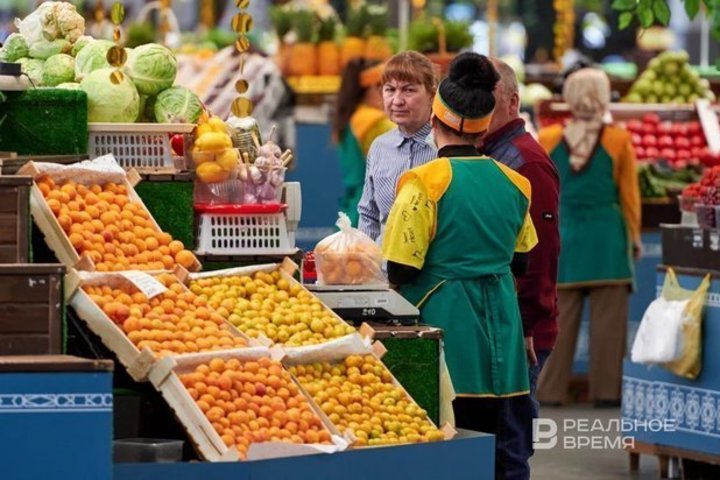
Ildar Gilmutdinov added that now the agenda also includes the need to ensure the socio-cultural adaptation of foreign citizens. It is necessary to establish its rules, determine for which categories of citizens it will become mandatory, and revise the concept of migration policy:
Today, together with the Federal Agency for Nationalities, we are working on the spring changes to the legislation as a separate article related to the socio-cultural adaptation of visiting workforce.
In addition, he added, labour migration should be put on a systemic and understandable basis not only for civil servants, but also for ordinary citizens. Clear and understandable rules should appear for everyone: who can come to us, for what purpose, under what conditions and requirements.
“This will not be a problem”
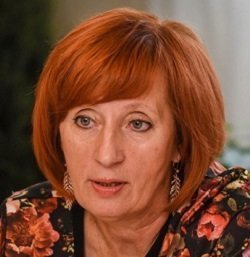
According to Sharafutdinova, the responsibility to organise the submission of biometric data and the registration of electronic certificates is unlikely to be imposed on employers, since it was reported that we are talking about control that will be carried out at entry into the country. She noted that certain rules have already been established according to which employers report on foreign workers to the migration service, submit reports, inform about the hiring and dismissal of foreigners, and it is unlikely that they will be assigned any new responsibilities.
They are caught, but they violate rules
As reported by the Ministry of Internal Affairs of the Republic of Tatarstan in response to a request from Realnoe Vremya, as of 1 October 2024, there were actually 91,846 foreign citizens in the migration registry at their place of stay, and 20,866 foreign citizens living on the basis of a temporary residence permit and a residence permit in Tatarstan — a total of 112,712 foreign citizens and stateless persons.
As of 1 October, more than 60% of foreign citizens were registered for migration at their place of stay in Kazan, and in general, almost 87% of migrants were registered in the capital of the republic and four large regional centres — Naberezhnye Chelny. Nizhnekamsk, Yelabuga and Almetyevsk.
“Over the first 9 months of 2024, 1,150 work permits were issued to foreign citizens,” the Ministry of Internal Affairs of the Republic of Tatarstan reported to Realnoe Vremya.
According to the Ministry of Internal Affairs of the Republic of Tatarstan, over the first 9 months of 2024, 16,872 protocols were drawn up against migrants for violating migration laws. Most of all — more than 12,500 in total — were violators of entry rules into the territory of Russia or the regime of residence, that is, illegal immigrants, another 862 foreigners were caught illegally carrying out labour activities. And 1,807 protocols were drawn up for illegally involving a foreign citizen or stateless person in labour activities in the Russian Federation.
For malicious violation of the regime of stay and conditions of participation in labour relations in Russia against 3,003 foreign citizens, court decisions on administrative expulsion from the Russian Federation were made, of which 2,427 were taken to a temporary detention centre for foreign nationals, and 576 were sent out on their own under control, the Ministry of Internal Affairs of the Republic of Tatarstan reported.
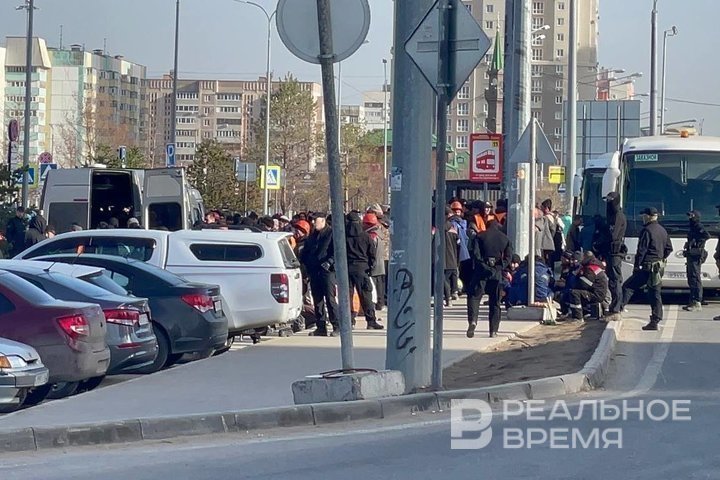
However, the measures taken are clearly insufficient, since employers are often on the opposite side of the barricades from law enforcement officers. For example, on 5 November, near the village of Borok in Nizhnekamsk District, police officers, together with employees of the local office of the Federal Security Service and the prosecutor's office, detained 20 migrant workers during another raid who were repairing railroad tracks without work permits. Yesterday's migrants who recently became citizens of Russia were caught in another violation of migration legislation — evasion of military duty to their newly acquired Fatherland. On 6 November 2024, the 384th military investigative department of the Investigative Committee of the Russian Federation, together with the military commissariats of the Republic of Tatarstan and Chuvashia, the migration departments of the Ministry of Internal Affairs of the Republic of Tatarstan and the Ministry of Internal Affairs of Chuvashia and units of the Russian Guard, conducted another, 12th in 2024, raid called Illegal Migrant.
As a result, 30 evaders from among the newcomers who received citizenship of the Russian Federation were registered for military service, and a total of more than 329 were since the beginning of the year.